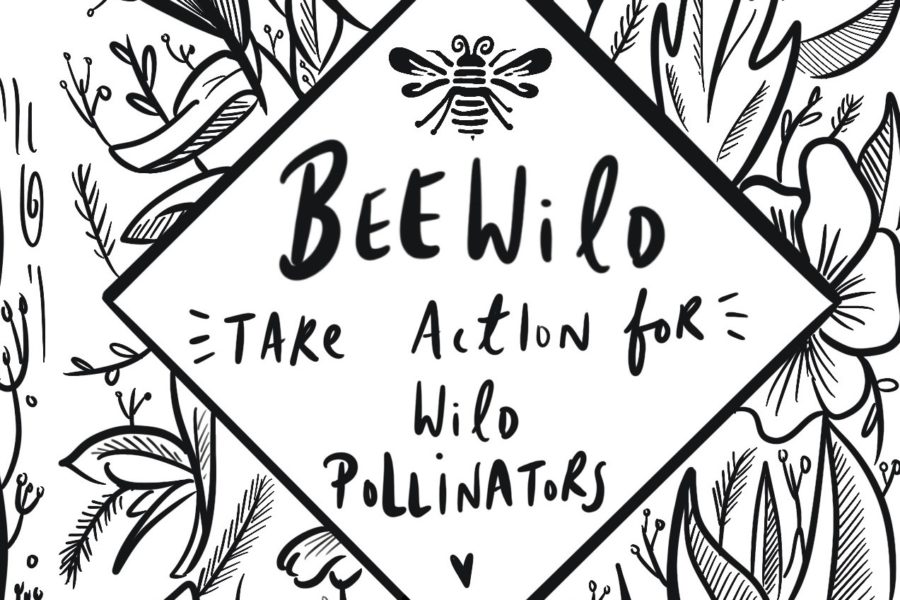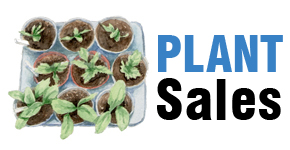Our two years of Bee Wild, funded by The National Lottery Heritage Fund, started in autumn 2018 and ran until late 2020.
Through BeeWild, we set out with the intention to maintain wildflower meadows, grow nectar-rich planting, create a ‘green corridor’, conserve ponds, engage in sustainable bee keeping, and survey pollinator species. We also wanted to raise local residents’ awareness about pollinators through open days, workshops and information stalls to learn about pollinators and partake in conservation activities. And we wanted to distribute a pollinator ID resource to local households, nectar rich planting to households, and create a guided pollinator trail at Hawkwood for visitors.
BeeWild at Hawkwood
We significantly improved the flower meadow, deadwood habitats and green corridor linking with Epping Forest and there are now multiple bug hotels on site, some made by older people during their chair yoga and volunteering sessions. Some are bee hotels or lacewing hotels, 10 were solitary bee homes. Two new ponds have been created, both full of water and plants and the team eagerly await frogspawn this spring.
We also ran four training sessions in sustainable beekeeping, and in Year 2 designed and delivered a specific AQA pollinator course for volunteers who wanted to learn more about pollinators and bee-friendly gardening. OrganicLea now has six beehives, four of which currently have families of honey bees in them, and over 30 volunteers were involved in their creation and care.
Our pollinator trail around the site and BeeWild zine have been used on site many times. Pre-Covid, our open days featured a family focused BeeWild craft and nature activity, centred around printmaking. Activities included making pollinator themed bunting, and a pollinator themed banner for used on a march campaigning for better farming. Craft activities were based on observations of pollinator plants on site, and we held a native trees and shrub giveaway at the September 2019 event.
Photographs were taken by a renowned wildlife photographer to aid insect identification on site, and additional books were purchased for staff and volunteers to use. This library is creating knowledge and enhancing the booklet of species at Hawkwood. There is also a whiteboard in the volunteer cloakroom for people to note down any new species they have seen that day. This is then collected by the pollinator lead member of staff to add to the knowledge about what is on site.
Surveys have continued throughout the year, especially linked to the UK Pollinator Monitoring Scheme: Flower-Insect Timed Count – see UK Pollinator Monitoring Scheme | UK Centre for Ecology & Hydrology (ceh.ac.uk) This work will continue into the future as a long- term action. Surveying in the community was harder due to lockdown but it will be restarted once community gardening resumes.
Because the activities at Hawkwood had pollinator friendly tasks built into them, the programme of activities provided for the schools on site were also more pollinator friendly. Therefore, young people were more involved in BeeWild and were learning about pollination alongside their ‘usual’ gardening sessions.
Some specific changes / impact on Hawkwood’s pollinator species and their habitats include:
- Flower borders were planted and have produced a greater variety of pollination along the entrance field involving moths, butterflies, hover flies, bumble bees, solitary bees.
- The meadow in the orchard was sown early in 2019 with succession sowing and had an abundance of flowers from May to August in 2020, on what was couch grass.
- The woodland corridor was created and improved, providing a link between the site and Epping Forest. Even the building of the Woodland Classroom did not disrupt the corridor as planting ensured the corridor remained continual and a green roof was added to the building.
- Many more habitats were created for pollinators around the site including lacewing hotels, bee hotels, leaving hollow plant stems in place and hollow trees.
- Bulbs and plants have been planted to enhance the habitat and encourage biodiversity.
- Two ponds have been built and although not yet fully established (it takes longer for pond life to move in naturally) they are full of water and plants and awaiting the pond life.
- There were 67 species of plants identified at Hawkwood in 2020, in addition to the flowers, fruit, herbs and vegetables planted for sale. This supported the diverse habitats of species on site. Common species across three of the growing sites (Springfield, Orchard and Lower Salad Terrace) included Cock’s Foot, Yorkshire Fog, Creeping Cinquefoil, Bramble, Wood Dock and Yarrow.
- There are now five trained beekeepers amongst the staff team. Before BeeWild there was one. They are able to care for the bees on site and ensure habitats are bee-friendly. And in September 2020 the AQA volunteers identified 11 types of bee on site ranging from Honeybee, Garden Bumblebee, Red-tailed Bumblebee to Vestal Cuckoo Bee and Davies’ Colletes. There are about 25 species of Bumblebee in Britain and around 275 species of bee.
- Staff have been trained and are now comfortable with basic field identification of species enabling BeeWild related conversations to happen with each group of volunteers regardless of the staff member leading the group.
We surveyed some of our volunteers to ask if they picked up any new information about pollinators (bees, butterflies, and other plant-supporting wildlife) during 2020. Responses included:
- The idea of creating new paths through the woodland to create fresh habitats for wildlife was new to me and learning about the contribution of the ponds as a habitat for insects, frogs, dragon flies etc. that prey on plant predators.
- I have learnt how important pollinators are and ways to maintain their habitats by: planting more pollinator friendly plants and building structures such as ‘bug hotels’ to provide them with shelter.
- During the level 1 horticultural course, we discussed the importance of pollinators and habitats, but mostly I developed a greater understanding of what I can do as a grower to improve the habitat on my own balcony to encourage pollinators and natural pest control.
- I learned that a way to encourage them is to create places they like to live alongside the veg beds.
- I learnt that pollinators are a hugely diverse group and that each genus and/or species can have very specific needs in terms of habitat and food sources, so ensuring a diversity of habitats and food sources is important. I especially love that I can now identify some common pollinators and know the difference between solitary bees, bumble bees and honey bees! I hope my new understanding will allow me to provide more suitable habitats in my own garden and growing spaces.
- I feel confident in supporting pollinators in my garden and allotment. I also find I can advise others on how to improve habitats to promote pollinators. I loved that practical nature of the 6 week course – planting seeds and bulbs for pollinators, identifying types of pollinators, building a bumble bee home, learning about domestic bees (and how beekeeping is a complex activity that does not necessarily address the loss of pollinators).
- I learned so much by just spending time, observing, listening, feeling (wind and air temperature….). This is different from being given information.
- From taking the level one certificate we dedicated a number of tutorials to the approaches to supporting ecosystems which are beneficial to organic growing practice, i.e. companion planting to attract beneficial predators as well as pollinators, and also creating various habitats within the systems design which attract supportive wildlife.
- I hadn’t really ever considered the migratory routes of pollinators or where they actually come from and the habitats they need. There are also plenty of pollinators that I hadn’t really considered as pollinators.
- That there are 270 species of bees in the UK. Bees have smelly feet. This was a highlight of the year. It was a meditative experience allowing us to immerse ourselves in the world of pollinators.
- We planted wild flowers in April 2020 with Sara, and to see them grow and learn about their potential benefits to attract different beneficial pollinators was really interesting and formative.
- It was great to see the ever growing variety of pollinators on site, and learn about their contribution to growing fruit, veg and flowers. The flower meadows looked lovely in the summer and were alive with insects.
The seasonal pollinator tasks we started are now embedded in regular ways of working and will continue into the future. Tasks included caring for fruit trees and plants, propagation and maintenance of the meadow area and pollinator strips, creating bug hotels, creating and maintaining ponds alongside growing a wide range of pollinator rich flowers around the site alongside seasonal vegetables and fruit. The flowers became part of our CSA which you can learn more about here.
BeeWild in the borough
Because we were unable to carry out all the community workshops planned in summer 2020, it was agreed to use some of the budget to grow more pollinator plants for distribution in the community. Almost 1,000 plants were shared via community partners, including to people in isolation. Some of this activity happened with sheltered housing projects (OrganicLea worked in collaboration with the council to deliver plants to 100 residents of sheltered homes, to those living independently in supported living for supported windowsill gardening sessions and gardening sessions), the Dementia hub (for a pollinator-friendly garden, and pollinator gardening sessions) and with people referred by Age UK Waltham Forest (for online gardening sessions).
We also ran online sessions to support people to grow plants in their own gardens and a popular ‘ask the gardener’ online Q&A session in the middle of the growing season.
OrganicLea worked with schools in a variety of ways including summer education and outdoor activity days for 5-16 year olds, forest school primary programme, in-school one-off workshops, weekly gardening groups for children expelled from mainstream school, supporting schools each week to grow food and engage with the natural world, work experience programmes to teenagers with Special Educational Needs and Disability.
The BeeWild project may have come to an end, but our work to conserve and create pollinator habitats continues. The BeeWild team continue to plan to increase their personal learning through courses so that they can pass on that learning to others who engage with them, be they staff, sessional staff, OrganicLea Gardeners, course participants and volunteers. And the BeeWild activity integrated into the routines of OrganicLea will continue, for example planting pollinator friendly plants and maintaining the green corridor.





